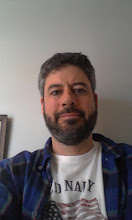Is this a holy thing to see
In a rich and fruitful land,
Babes reduced to misery
Fed with cold and usurous hands?
Is that trembling cry a song?
Can it be a song of joy?
And so many children poor?
It is a land of poverty!
And their sun does never shine,
And their fields are bleak & bare,
And their ways are fill'd with thorns
It is eternal winter there.
For where-e'er the sun does shine
And where-e'er the rain does fall,
Babe can never hunger there,
Nor poverty the mind appall.
(William Blake: Canciones de Inocencia y de Experiencia, p. 120)
It is an intrinsic part of Romanticism, of course, although they criticize the negative consequences of modern society in the name of a return to the old ways that will never happen. Theirs is an attitude full of nostalgia.

No hay comentarios:
Publicar un comentario